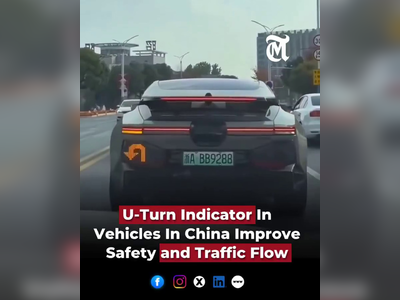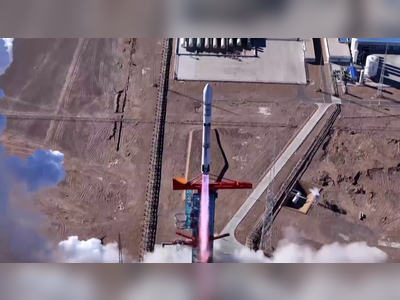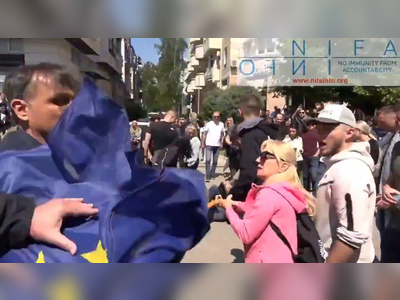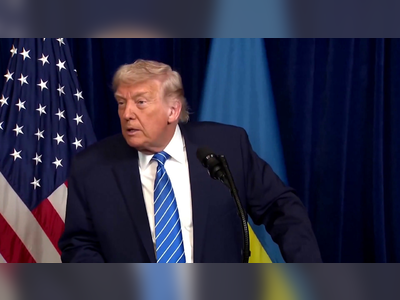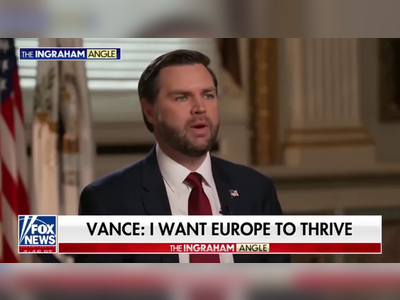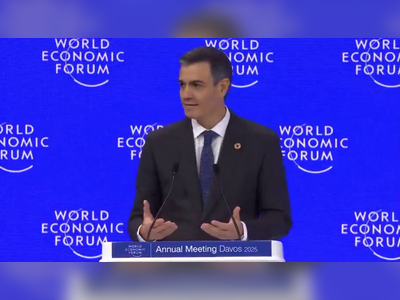Elon Musk's Controversial Social Media Exchange with German AfD Leader Sparks Debate
The Tesla CEO's interaction with Alice Weidel draws scrutiny and highlights political tensions in Germany and beyond.
In a striking instance of transatlantic discourse, Elon Musk, the CEO of Tesla and owner of the social media platform X, participated in a controversial conversation with Alice Weidel, leader of the far-right Alternative for Germany (AfD) party.
This unexpected dialogue, lasting over 70 minutes, has provoked significant media attention due to several inaccurate statements and contentious topics discussed.
The interaction began with Musk inaccurately claiming that Alice Weidel was the most popular candidate for German chancellor 'according to polls,' a statement quickly discredited by current polling data.
In reality, the AfD trails behind the Christian Democratic Union (CDU) by 11 percentage points in national opinion polls.
Additionally, Weidel herself ranks lowest in popularity among candidates for Germany's chancellorship in the upcoming February elections.
A recent poll by infratest dimap highlighted that merely 20% of Germans express satisfaction with Weidel's performance, a figure that mirrors the historically low approval ratings of current Chancellor Olaf Scholz of the Social Democratic Party.
Throughout the conversation, both Musk and Weidel made provocative claims.
Musk erroneously stated that theft is legal in California, while Weidel astonishingly described Adolf Hitler as a communist.
Topics broached extended to Germany's energy policies, nuclear power, immigration, and geopolitical matters, including conflicts in Ukraine and the Middle East.
Musk expressed hope that former U.S. President Donald Trump could resolve these conflicts expeditiously, whereas Weidel criticized what she viewed as two decades of poorly managed governance in Germany.
In their dialogue, both parties also addressed bureaucratic hurdles confronting businesses in Germany.
Musk, who has encountered such challenges with Tesla’s Gigafactory near Berlin, acknowledged the governmental support for the project.
Contrary to Weidel, Musk affirmed the advantages of renewable energy, although both concurred on the idea of reopening Germany’s nuclear plants.
This discourse, though marred by inaccuracies and bold statements, is under scrutiny for its potential implications on Weidel's election campaign.
Bendix Hügelmann, a German political strategist, remarked that Weidel might have overlooked an opportunity to enhance her public image.
He noted a contrast in Weidel's academic approach compared to Musk's more conversational style.
The conversation attracted a considerable online audience, with initial listenership exceeding 200,000, before interest dwindled as Musk diverged into topics such as his space exploration endeavors.
Philipp Adorf, a political scientist at Bonn University, suggested that Weidel could be attempting to appeal to a U.S. audience by forging connections with prominent right-wing figures.
Nevertheless, the interaction has incited concerns regarding potential election interference, with speculation among some European Union officials about its influence on the German electoral process.
Weidel's intention to use the platform to solidify her party's stances was noted, yet critics observed her limited engagement on crucial issues like immigration, a primary concern for the AfD.
The conversation ended on an unexpectedly philosophical note, with Musk sharing his scientific perspective on divinity and Weidel characterizing the discussion as 'beautiful.' As this dialogue continues to resonate within German and international circles, its implications remain a highly debated topic.
This unexpected dialogue, lasting over 70 minutes, has provoked significant media attention due to several inaccurate statements and contentious topics discussed.
The interaction began with Musk inaccurately claiming that Alice Weidel was the most popular candidate for German chancellor 'according to polls,' a statement quickly discredited by current polling data.
In reality, the AfD trails behind the Christian Democratic Union (CDU) by 11 percentage points in national opinion polls.
Additionally, Weidel herself ranks lowest in popularity among candidates for Germany's chancellorship in the upcoming February elections.
A recent poll by infratest dimap highlighted that merely 20% of Germans express satisfaction with Weidel's performance, a figure that mirrors the historically low approval ratings of current Chancellor Olaf Scholz of the Social Democratic Party.
Throughout the conversation, both Musk and Weidel made provocative claims.
Musk erroneously stated that theft is legal in California, while Weidel astonishingly described Adolf Hitler as a communist.
Topics broached extended to Germany's energy policies, nuclear power, immigration, and geopolitical matters, including conflicts in Ukraine and the Middle East.
Musk expressed hope that former U.S. President Donald Trump could resolve these conflicts expeditiously, whereas Weidel criticized what she viewed as two decades of poorly managed governance in Germany.
In their dialogue, both parties also addressed bureaucratic hurdles confronting businesses in Germany.
Musk, who has encountered such challenges with Tesla’s Gigafactory near Berlin, acknowledged the governmental support for the project.
Contrary to Weidel, Musk affirmed the advantages of renewable energy, although both concurred on the idea of reopening Germany’s nuclear plants.
This discourse, though marred by inaccuracies and bold statements, is under scrutiny for its potential implications on Weidel's election campaign.
Bendix Hügelmann, a German political strategist, remarked that Weidel might have overlooked an opportunity to enhance her public image.
He noted a contrast in Weidel's academic approach compared to Musk's more conversational style.
The conversation attracted a considerable online audience, with initial listenership exceeding 200,000, before interest dwindled as Musk diverged into topics such as his space exploration endeavors.
Philipp Adorf, a political scientist at Bonn University, suggested that Weidel could be attempting to appeal to a U.S. audience by forging connections with prominent right-wing figures.
Nevertheless, the interaction has incited concerns regarding potential election interference, with speculation among some European Union officials about its influence on the German electoral process.
Weidel's intention to use the platform to solidify her party's stances was noted, yet critics observed her limited engagement on crucial issues like immigration, a primary concern for the AfD.
The conversation ended on an unexpectedly philosophical note, with Musk sharing his scientific perspective on divinity and Weidel characterizing the discussion as 'beautiful.' As this dialogue continues to resonate within German and international circles, its implications remain a highly debated topic.
AI Disclaimer: An advanced artificial intelligence (AI) system generated the content of this page on its own. This innovative technology conducts extensive research from a variety of reliable sources, performs rigorous fact-checking and verification, cleans up and balances biased or manipulated content, and presents a minimal factual summary that is just enough yet essential for you to function as an informed and educated citizen. Please keep in mind, however, that this system is an evolving technology, and as a result, the article may contain accidental inaccuracies or errors. We urge you to help us improve our site by reporting any inaccuracies you find using the "Contact Us" link at the bottom of this page. Your helpful feedback helps us improve our system and deliver more precise content. When you find an article of interest here, please look for the full and extensive coverage of this topic in traditional news sources, as they are written by professional journalists that we try to support, not replace. We appreciate your understanding and assistance.

